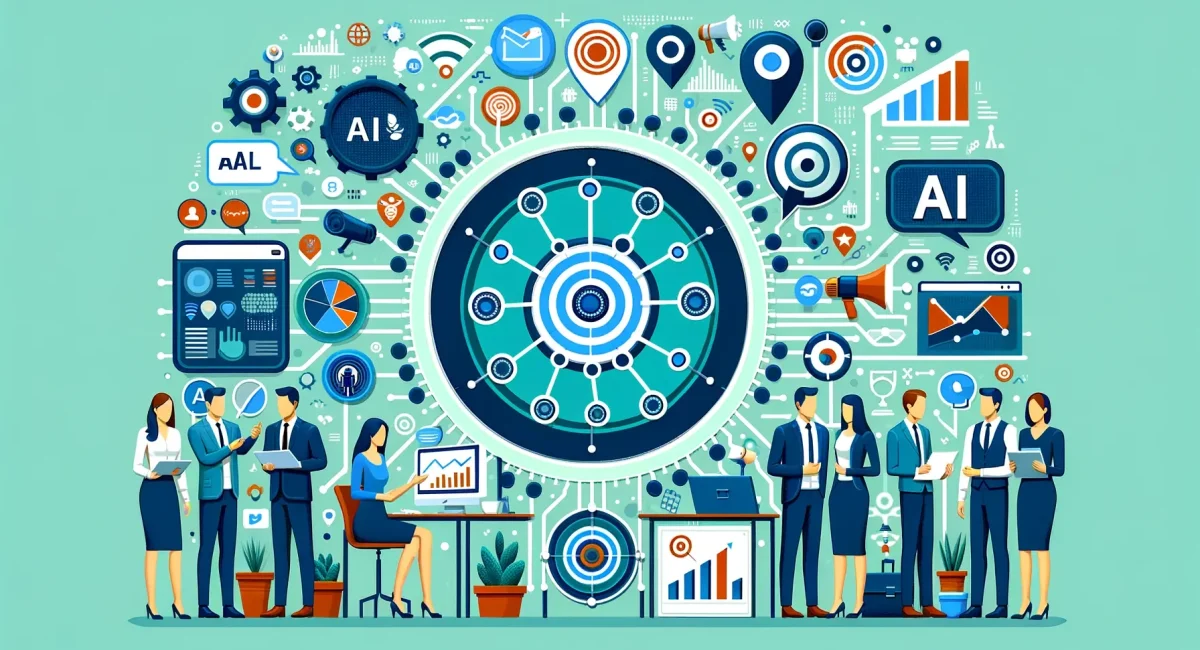In the rapidly evolving digital landscape, artificial intelligence (AI) has emerged as a game-changer for marketing strategies. By harnessing the power of AI, marketers can personalise customer experiences, streamline operations, and unlock insights from data at an unprecedented scale. In this article, we jump into the innovative use cases of AI in marketing, outline best practices for its implementation, and offer tips to maximise its potential.
Use Cases of AI in Marketing
Personalised Customer Experiences
AI enables marketers to deliver personalized content and recommendations to users based on their browsing history, purchase behavior, and preferences. By analyzing vast amounts of data, AI can identify patterns and predict customer needs, offering a tailored experience that boosts engagement and conversion rates.
Predictive Analytics
Predictive analytics powered by AI can forecast future consumer behaviors, market trends, and campaign outcomes. This foresight allows businesses to make informed decisions, optimize marketing strategies, and allocate resources more efficiently, enhancing ROI.
Chatbots and Virtual Assistants
AI-driven chatbots and virtual assistants provide 24/7 customer service, handling inquiries, offering product recommendations, and assisting with purchases. These tools improve customer satisfaction by ensuring quick and relevant responses, reducing wait times, and freeing up human resources for more complex tasks.
Paid Marketing
AI is revolutionising pay-per-Click (PPC) advertising by enabling more efficient and effective campaigns. AI technologies optimise bidding strategies, targeting, and ad placement in real-time, maximising the return on investment. By analysing vast datasets, AI identifies patterns and insights that can predict consumer behaviour and preferences, allowing for the creation of highly targeted and personalised ad campaigns. This level of automation and precision reduces wasted ad spend and improves the overall performance of PPC campaigns. AI-driven PPC tools can also dynamically adjust ads based on performance data, ensuring that advertisers are always leveraging the most effective messages and strategies to reach their audience.
Content Generation and Curation
AI tools can generate and curate content tailored to specific audiences, improving engagement and relevance. From writing product descriptions to creating targeted articles, AI can assist in maintaining a consistent content pipeline, thereby enhancing content marketing efforts.
Email Marketing optimisation
AI enhances email marketing by optimising send times, personalising email content, and segmenting audiences. Machine learning algorithms analyse customer engagement patterns to ensure that emails are sent when recipients are most likely to open them, maximising the effectiveness of email campaigns.
SEO
AI is transforming the landscape of search engine optimisation (SEO) by making it more dynamic and efficient. AI algorithms help in understanding user intent and behaviour, enabling the creation of more relevant and personalised content. Tools powered by AI can analyse vast amounts of data to identify trends, predict changes in search engine algorithms, and optimise websites for better rankings more effectively. They automate routine tasks, such as keyword research and content optimisation, freeing SEO professionals to focus on strategy and creativity. By leveraging AI, businesses can ensure their SEO efforts are not just reactive but also proactive, staying ahead of the curve in a constantly evolving digital environment.
Best Practices for Implementing AI in Marketing
Start with a Clear Objective
Identify specific goals you want to achieve with AI, such as increasing engagement, improving customer service, or enhancing personalization. A clear objective guides the selection of tools and strategies, ensuring a focused approach.
Ensure Data Quality
AI’s effectiveness heavily depends on the quality of data. Ensure your data is accurate, comprehensive, and clean before leveraging AI for marketing purposes. Regular data audits and maintenance are crucial for reliable AI outcomes.
Understand Regulatory and Ethical Considerations
Be aware of privacy laws and ethical standards related to AI and data usage. Transparency with customers about how their data is used and implementing robust data protection measures are essential to maintain trust and compliance.
Foster Collaboration Between Teams
AI implementation should be a collaborative effort involving marketing, IT, and data science teams. This collaboration ensures the seamless integration of AI tools into marketing strategies and operations, leveraging the expertise of different departments.
Tips for Maximizing the Potential of AI in Marketing
Maximizing the potential of AI in marketing not only involves the integration of technology into marketing strategies but also a shift in mindset towards continuous improvement and customer-centricity. Here are more detailed tips to help marketers harness the full power of AI:
- Embrace a Data-Driven Culture: Creating a data-driven culture within your organization is crucial for the success of AI in marketing. Encourage teams to base decisions on data analysis and insights rather than intuition. This means continuously collecting, analyzing, and acting on data from various touchpoints and interactions. By fostering an environment where data is valued and effectively utilized, you can make more informed decisions, predict customer behavior more accurately, and personalize marketing efforts at a granular level.
- Leverage AI for Audience Segmentation: AI can analyze complex data sets to identify patterns and segments within your customer base that humans might overlook. Use AI to create more nuanced audience segments based on a wide range of behaviors, interests, and interactions. This allows for highly targeted marketing campaigns that speak directly to the specific needs and preferences of different groups, increasing engagement and conversion rates.
- Optimize for Voice Search and AI Assistants: With the rise of voice-activated devices and AI assistants, optimizing your content for voice search is becoming increasingly important. Integrate natural language processing (NLP) capabilities into your SEO and content strategies to ensure your brand is easily discoverable through voice searches. Understanding and adapting to the conversational queries used in voice search can help you capture this growing market segment.
- Automate Personalized Customer Journeys: AI can automate the creation of personalized customer journeys at scale. By analyzing individual customer data, AI can trigger specific actions or communications based on customer behavior, preferences, and purchase history. This could include personalized product recommendations, tailored email marketing campaigns, or customized offers. Automating these personalized interactions can significantly enhance the customer experience, fostering loyalty and increasing lifetime value.
- Monitor and Manage AI Ethics and Bias: As you implement AI in your marketing strategies, it’s crucial to monitor and manage potential ethical issues and biases. AI systems can inadvertently perpetuate biases present in their training data, leading to unfair or insensitive marketing practices. Establish guidelines for ethical AI use, regularly review AI decisions for potential biases, and ensure your marketing messages are inclusive and respectful to all audiences.
- Foster Cross-Functional Collaboration: Effective AI implementation requires collaboration across marketing, IT, data science, and other departments. Foster a culture of cross-functional teamwork to ensure that AI initiatives are well-supported and aligned with overall business goals. This collaboration can lead to innovative uses of AI that drive significant improvements in marketing effectiveness and efficiency.
Conclusion
The integration of AI into marketing strategies offers immense potential to transform how businesses engage with their customers, optimize operations, and drive growth. By personalizing customer experiences, leveraging predictive analytics, and automating routine tasks, AI enables marketers to achieve efficiency and effectiveness at scale. Adhering to best practices and staying abreast of technological advancements are crucial to harnessing the full potential of AI in marketing. As we move forward, the role of AI in marketing will only grow, making it an essential tool in the marketer’s arsenal for creating compelling, customer-centric campaigns.





